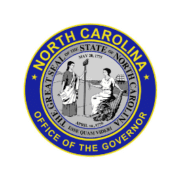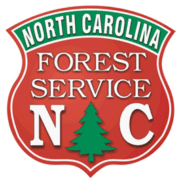The NextGen program that operates in the five-county area as part of NCWorks offers young adults support and help in the search for gainful employment, but they get much more than just the hope of a paycheck.
Helen Bradby, NextGen’s director, shared information about the program on Monday’s Town Talk and told John C. Rose about the NextGen’s successes. She and Desiree Brooks of Kerr-Tar workforce development board discussed just how NextGen and NCWorks work to connect job seekers with employers.
NextGen serves ages 16-24 who face at least one barrier to employment, from being homeless or having a criminal background to not having a high school diploma, being pregnant or a parent.
Brooks said the object is to help youth not only find a job, but to help them find a career.
Example: a young man from Warren County needed first to get his GED before he could continue on the path to employment. NextGen placed him in an on-the-job training assignment while he was completing his GED and as of last month, he is a permanent employee. “He’s making some good money,” Bradby added.
This particular “customer,” as Bradby refers to all those prospective employees that participate in the NextGen program, had some work experience, but he needed a few months of training to bring him up to speed, she said. NextGen provided 75 percent reimbursement to the employer for the employee’s wages during that time. That’s a win-win for the customer who gets placed in the job and for the employer who needs someone to do the work.
NextGen focuses on four career pathways that show promise of growth in the area: advanced manufacturing, informational technology, construction, and health care.
And while her program focuses on youth employment, Bradby emphasized that her program is keenly tuned in to the area’s businesses and employers, who serve as valuable partners and hire workers who come from NextGen.
“Send them to us, Helen, we can teach them,” is what she said she hears from employers in the area. Bradby said the employer partners can trust that the individuals NextGen sends to them have the willingness or the ability to learn new skills, even if they don’t already possess them.
The past program year proved challenging, Bradby said, but the new program year that began July 1 promises more and better opportunities for those who need a job and for those who need workers.
“This is not a cookie cutter program,” Bradby said. Every customer is evaluated individually. “We’re going to sit down with you and create a plan,” she said. The plan includes an educational goal and and employment goal, and there are detailed objectives to support achievement of the goals.
One person’s first step may be to complete a GED, while another may need help creating a resume. NextGen’s main purpose is to do what is needed to reach a customer’s goals.
Often, job-seekers in this age group need to be prepared for what an interview will be like. Employers are looking for workers with that set of “soft skills” such as politeness, listening and communication skills and time management.
“They want someone who’s going to actually show up” for work, Bradby said.
The employer partners are vital to the success of the program, Brooks said. “We are not a one-man show,” she said. Vance-Granville Community College and Piedmont Community College, along with the economic development corporations and the chambers of commerce all provide valuable support to NCWorks and the Kerr-Tar COG. Everybody is working toward that same goal of employing workers and getting them off on a career path that will provide them with a sustainable wage that will allow them to support their families.
Like the Vance County mother of one child who came to NextGen for help getting her nurse aide 1 credential. She did that at VGCC, passed her state exam and then returned for additional certification for medication aide credential. She now is employed full-time at Duke University Hospital, and receiving excellent benefits.
“That is exactly what a career path is,” Bradby said. This customer had several steps on her career path – to get one certificate and state credentials, then move along her career path to her goal of full-time employment. And that is exactly what NextGen is set up to do.
To learn more, visit https://nccareers.org/ncworks-nextgen-program or call 919.693.2686.
For complete details and audio click play.










